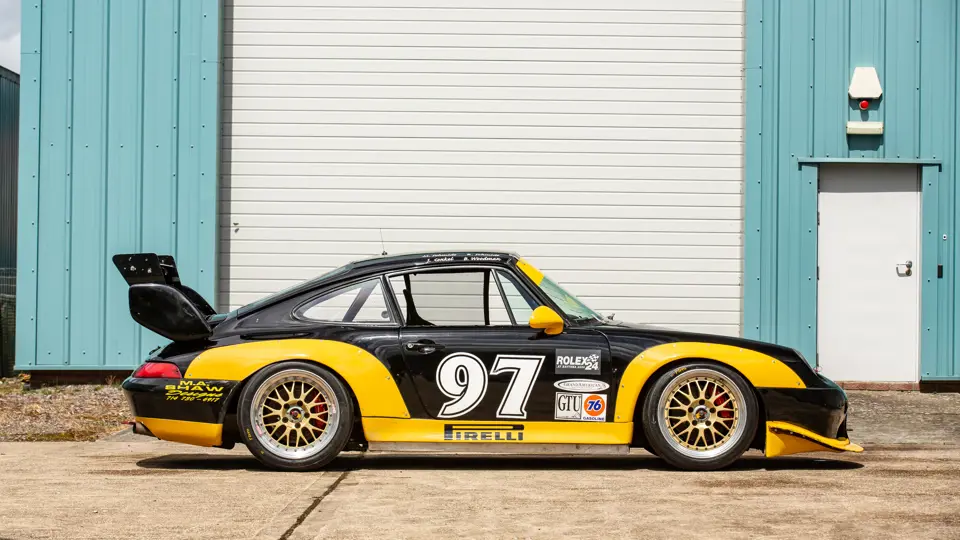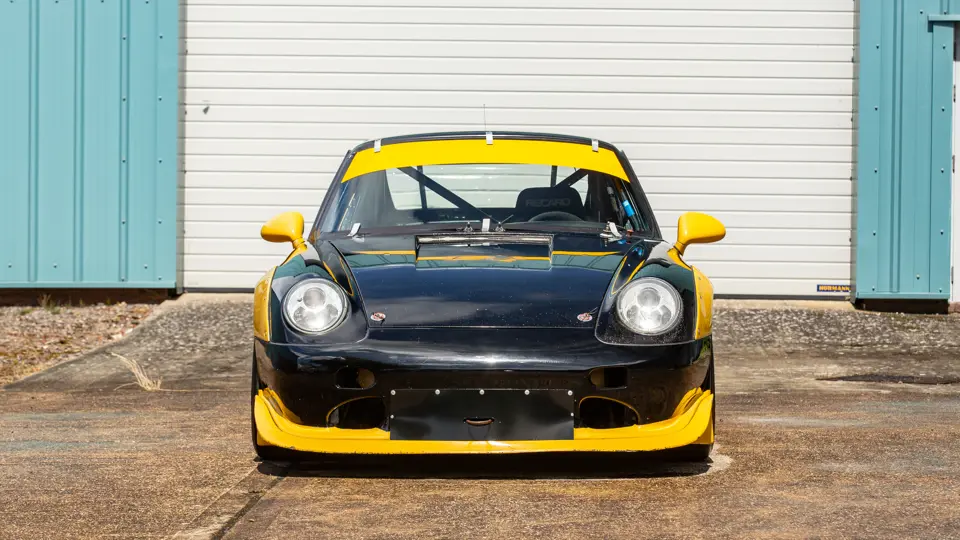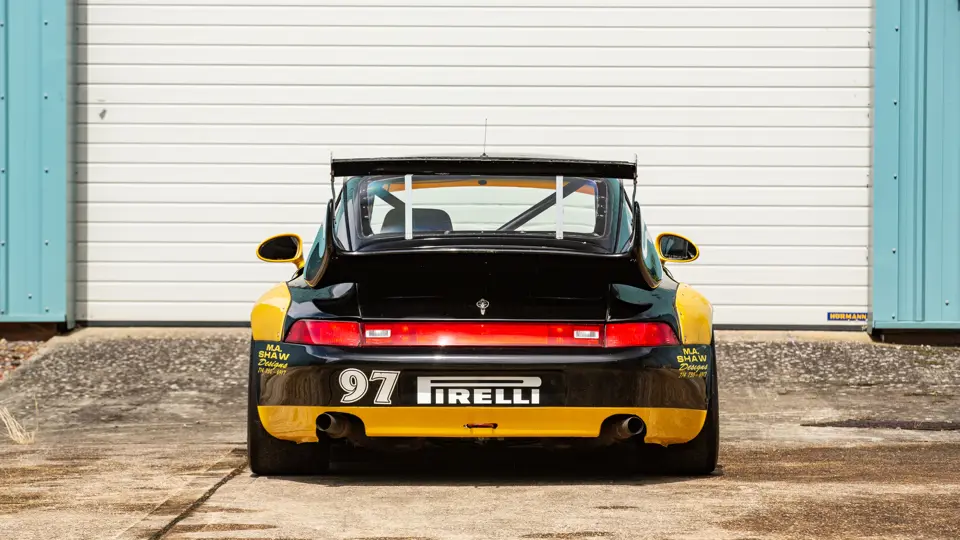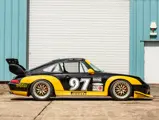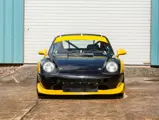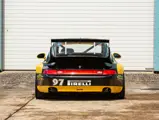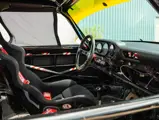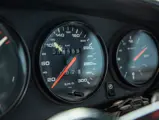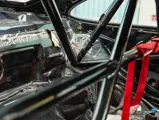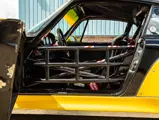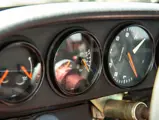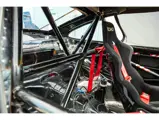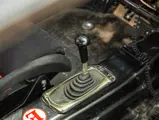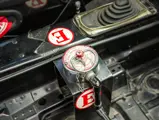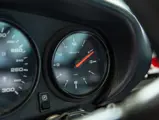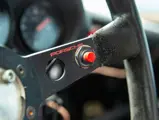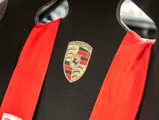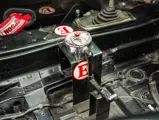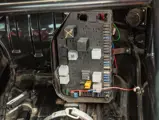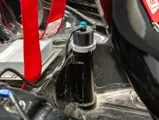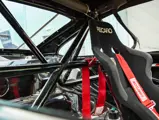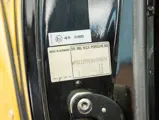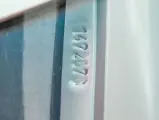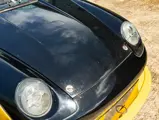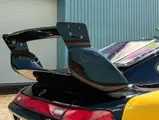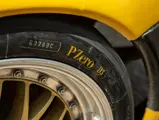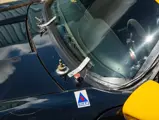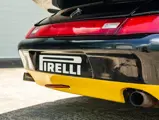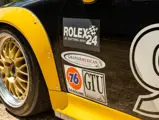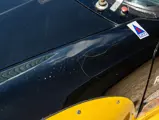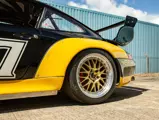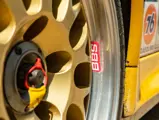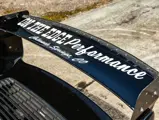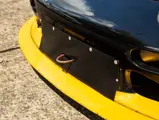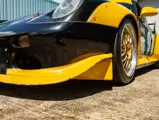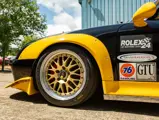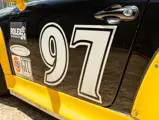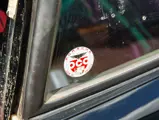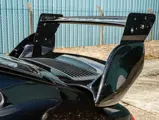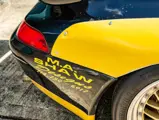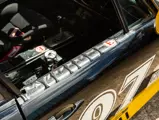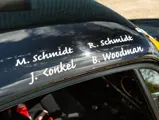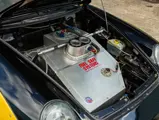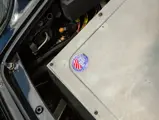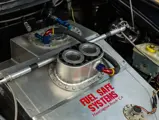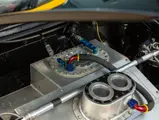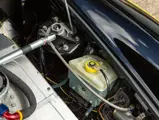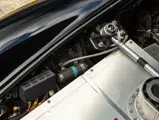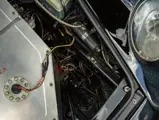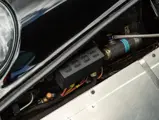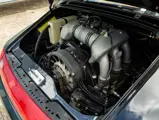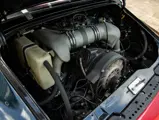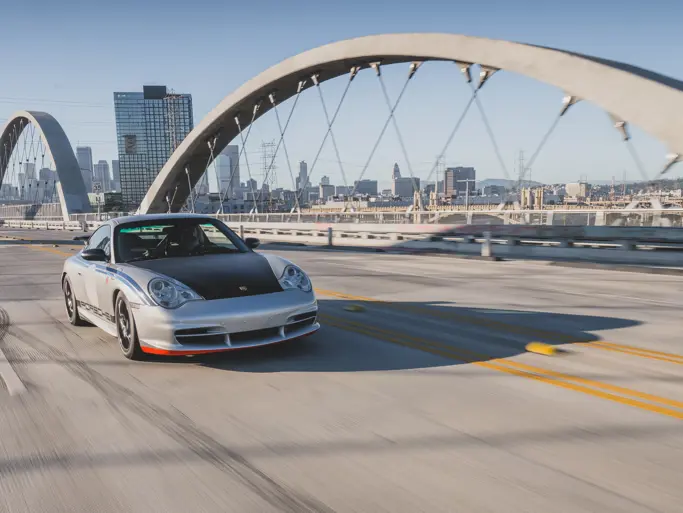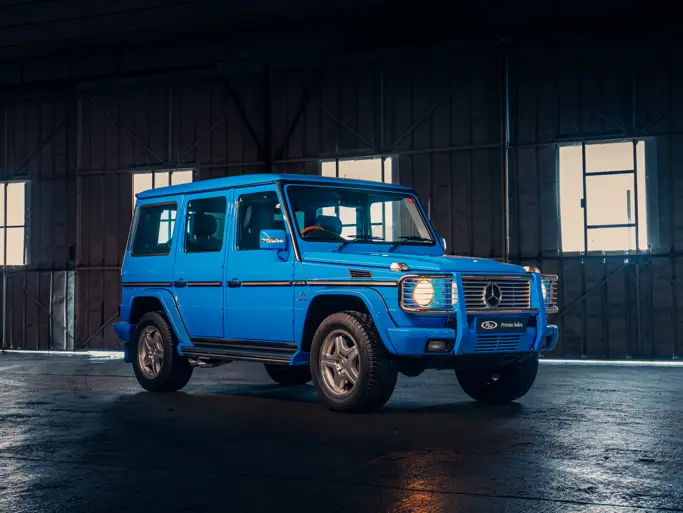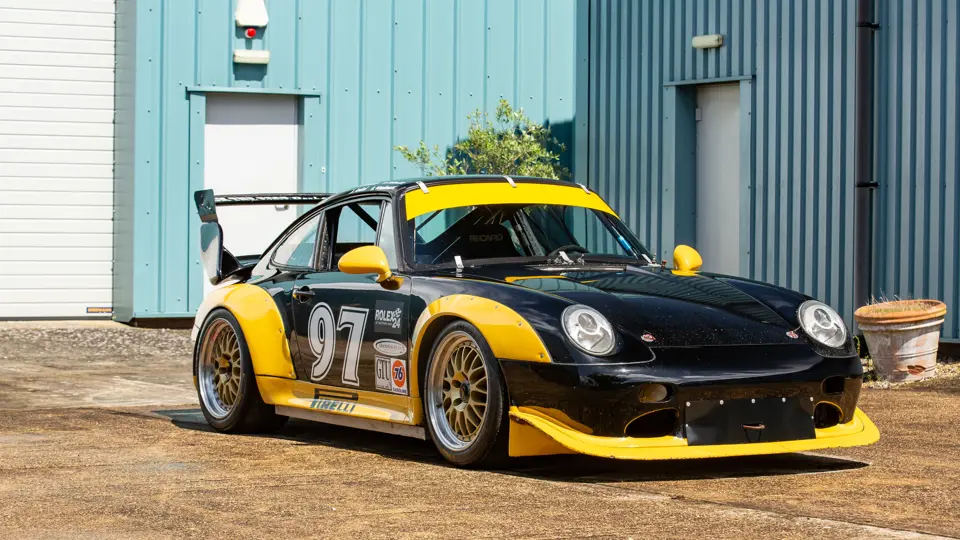
1996 Porsche 911 Cup 3.8 RSR
{{lr.item.text}}
$456,000 USD | Sold
{{bidding.lot.reserveStatusFormatted}}
- Final evolution of the naturally aspirated, air-cooled racing 911
- Two owners from new; one of few factory Black examples
- Substantial race history, with multiple 24 Hours of Daytona appearances
- Reported to retain many of its factory body panels
- Extensive documentation including order forms, correspondence, warranty booklet, invoices, and performance reports
The final chapter in a racing lineage dating from the hallowed Carrera RS 2.7, the Porsche 911 Cup 3.8 RSR represents the last air-cooled, naturally aspirated 911 racecar produced by Porsche’s Weissach motorsports department. Based on the firm’s new 993 Carrera 2 platform, the RSR drew heavily from its twin-turbocharged GT2 sibling and was developed specifically for endurance competitions such as Le Mans and Daytona.
Upgrades included a six-speed manual transaxle, full Matter roll cage welded within the body, riveted GRP fender flares, front and rear Turnwald “Clubsport” spoilers, Lexan windows, an aluminum hood, and two-way adjustable Billstein suspension. Discerning buyers could choose from a slew of 3.8-liter engine options, each tuned for specific competition and rated around 350 horsepower. Fewer than 50 are believed to have been built before Zuffenhausen debuted the water-cooled 996 and closed the door on its storied air-cooled performance career.
Sporting an outstanding degree of documentation and racing provenance, this example, chassis 398074, was ordered by American racer Max Schmidt of Schmidt Racing in the summer of 1996 ahead of the 1997 racing season. The car’s extensive history file includes Schmidt’s correspondence with Porsche Motorsport regarding available options, through several downpayments, and the car’s eventual air freight importation to the United States. There is even a May 1996-dated classified ad from On Track magazine through which Schmidt became aware of the upcoming 911 Cup 3.8 RSR.
Anticipating the arrival of his new prize, Schmidt preemptively ordered many performance and racing upgrades including lightweight doors, widened front fenders, and a 27-gallon IMSA fuel cell. Invoices following these purchases accompany the sale as do many of the factory parts which were exchanged during the car’s racing career.
Following 398074’s arrival in December 1996, it was pressed directly into its endurance racing career at the vaunted 24 Hours of Daytona on 2 February 1997, placing 21st overall with Schmidt and his partner Duke Johnson as co-drivers. Schmidt’s team raced the car extensively over the ensuing years including multiple appearances at Daytona, Sebring, and Pikes Peak. At the 2000 24 Hours of Daytona, it helped Schmidt Racing set a then-event-record by moving up 57 positions, finishing 22nd overall after starting 79th in a field of 80. Reams of performance reports document the careful engineering and tuning the car received during its career including a $15,000 engine and transmission rebuild in 2002 by Jerry Woods Enterprises of Campbell, California.
In 2013, this RSR was acquired directly from Max Schmidt by its second and current owner in Europe and has since been part of a small private sports car collection with no further racing career. Importantly, no serious accidents are found in its racing record and the car is purported to retain many of its factory body panels. Chassis 398074’s spartan cabin remains in race-ready condition, and while most RSRs were specified in Snow White, this is reported to be one of only a handful of examples finished in Black, furthering its collectability. In addition to the performance reports, service invoices, and factory correspondence, a group of owner’s manuals, warranty booklet, period racing photographs, and a substantial selection spare stock and performance parts accompany the sale.
Owing to its comprehensive level of documentation, extensive racing career, and short chain of ownership, this car represents a rare opportunity to acquire an exceptional factory-built RSR perfect for continued display or a glorious return to the track.




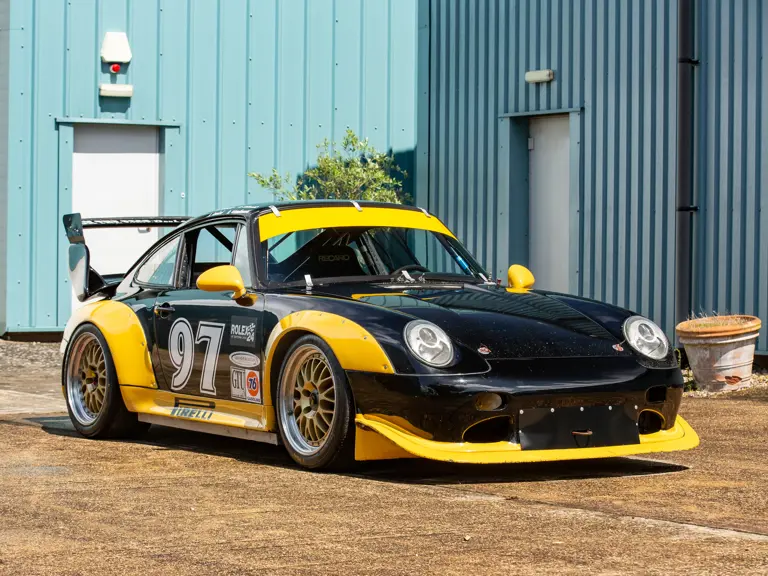
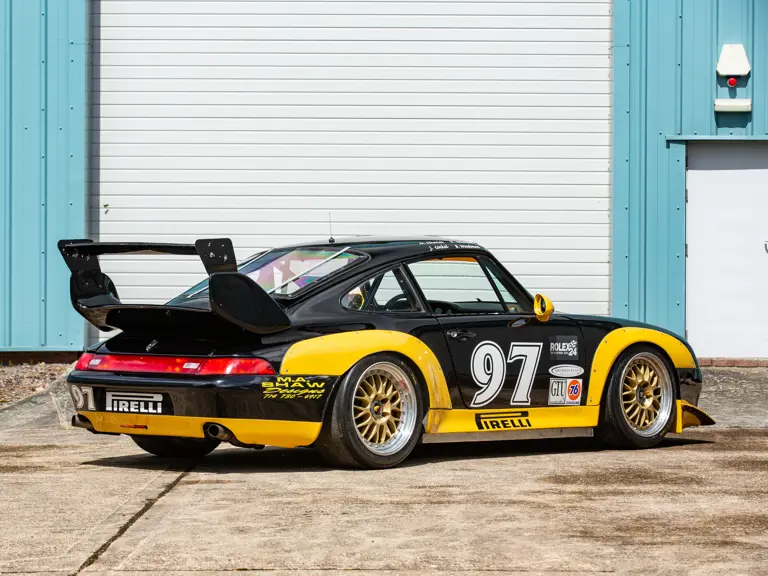
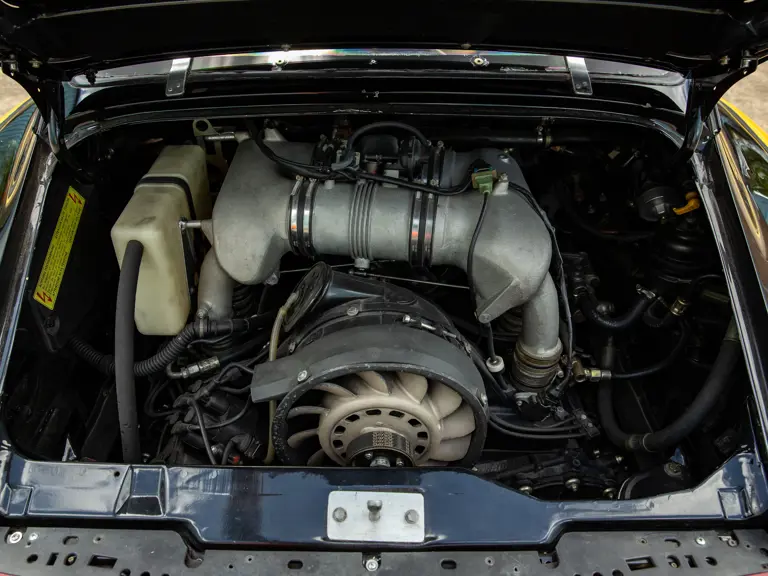
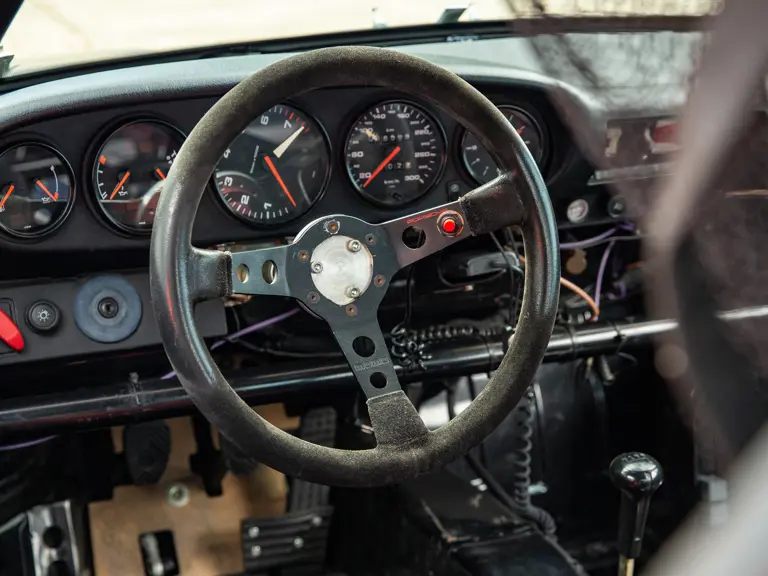
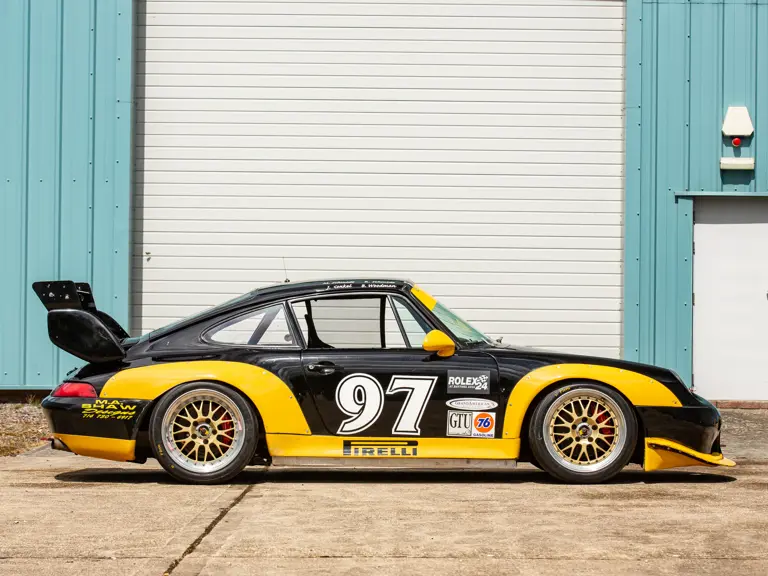
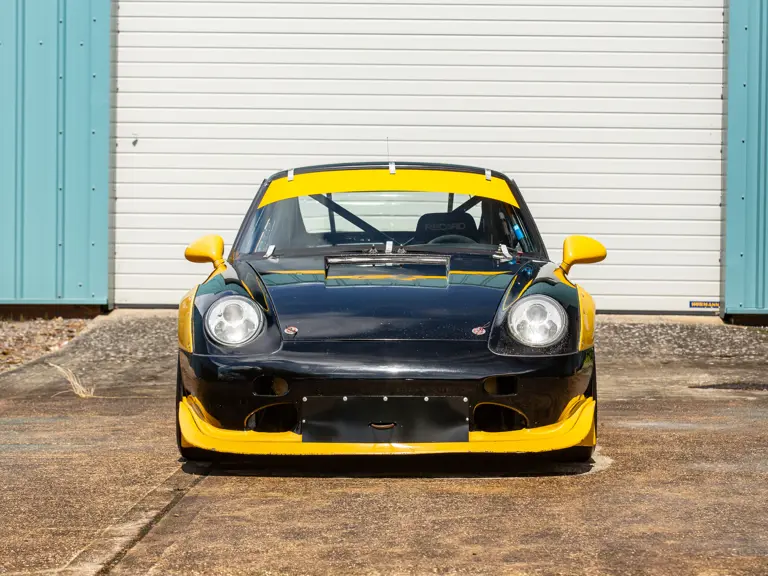
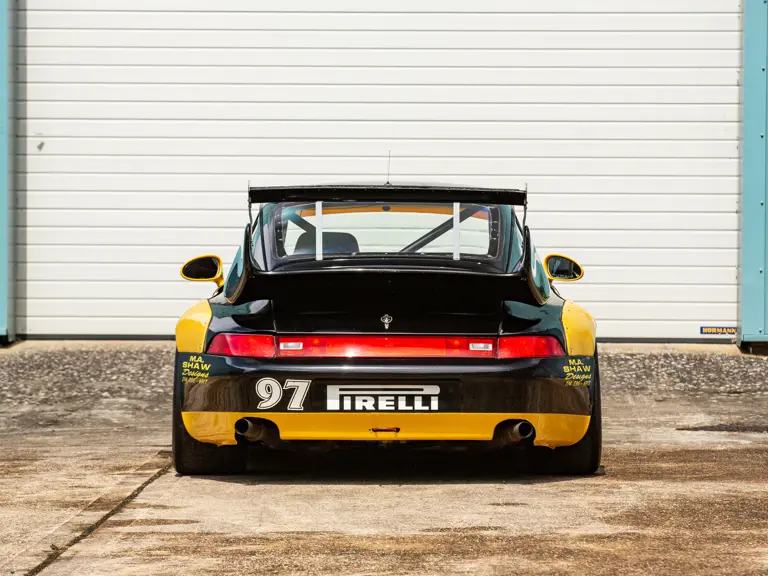
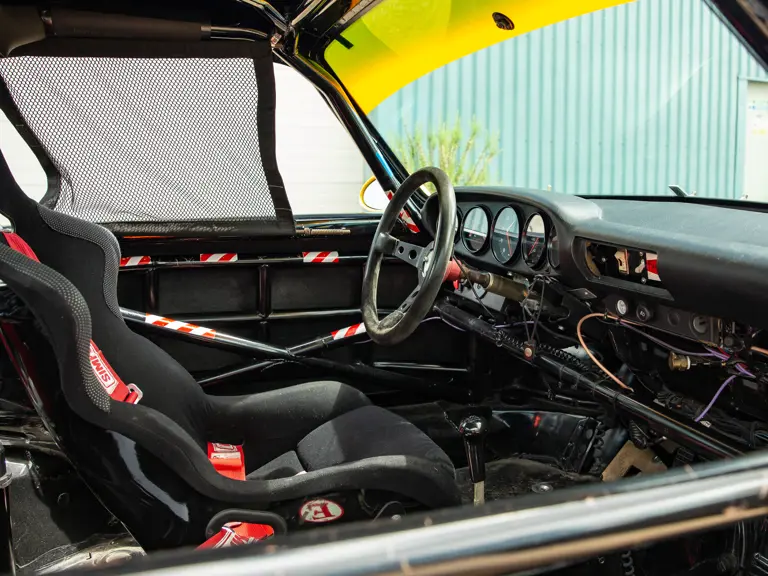
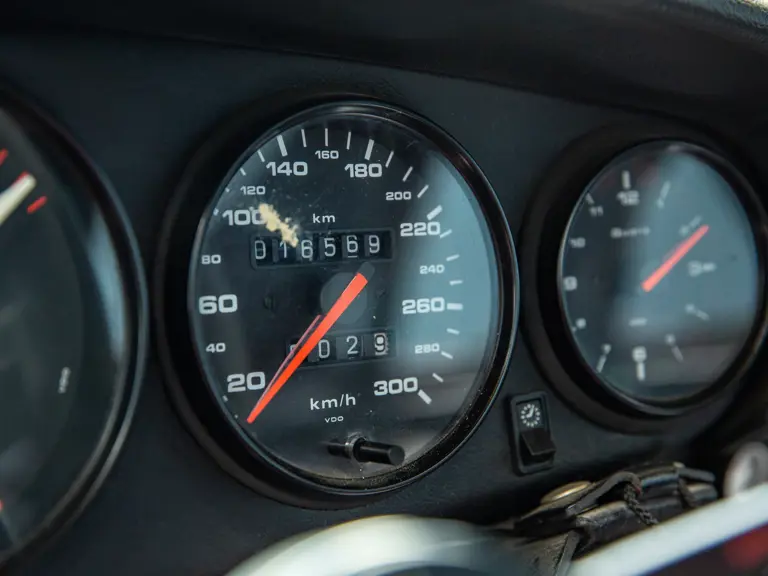
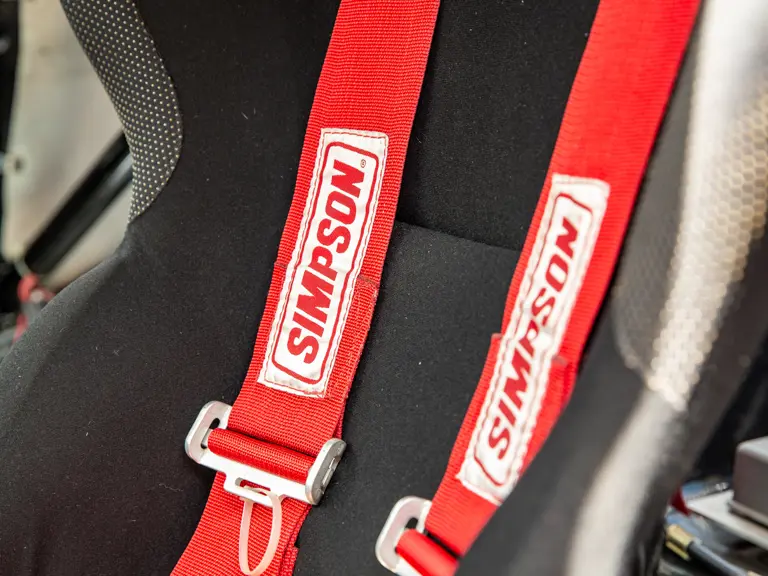
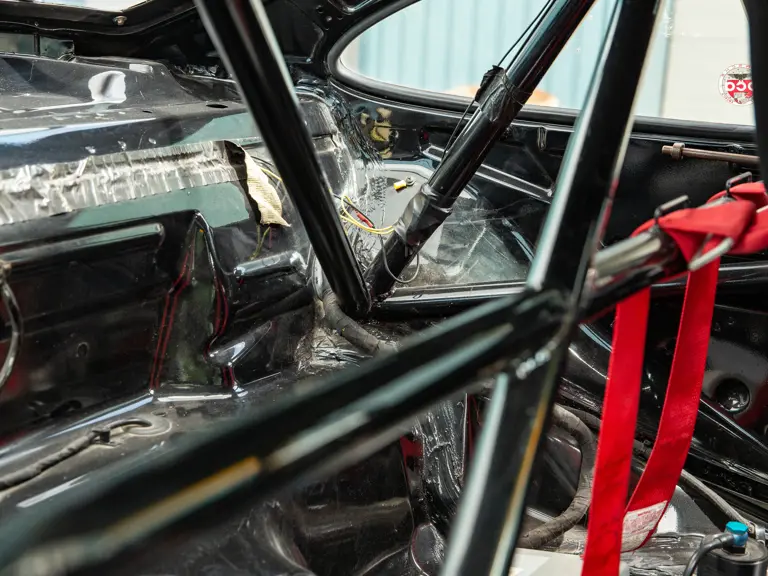
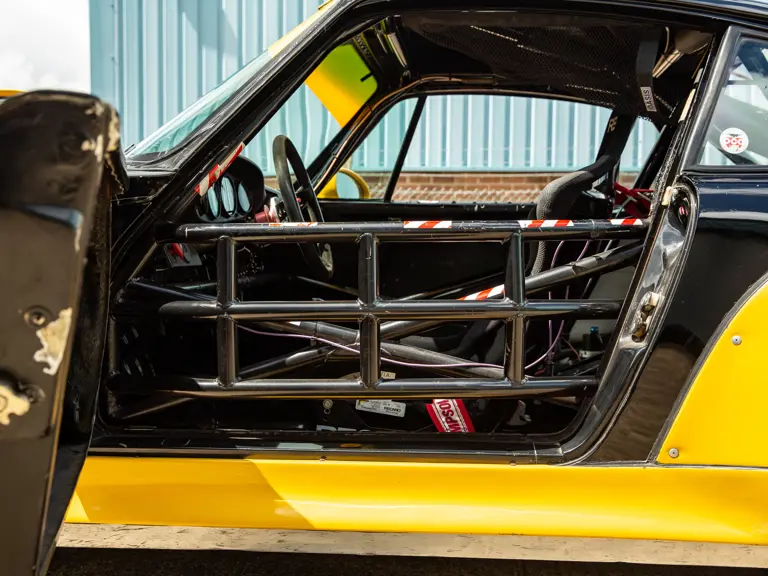
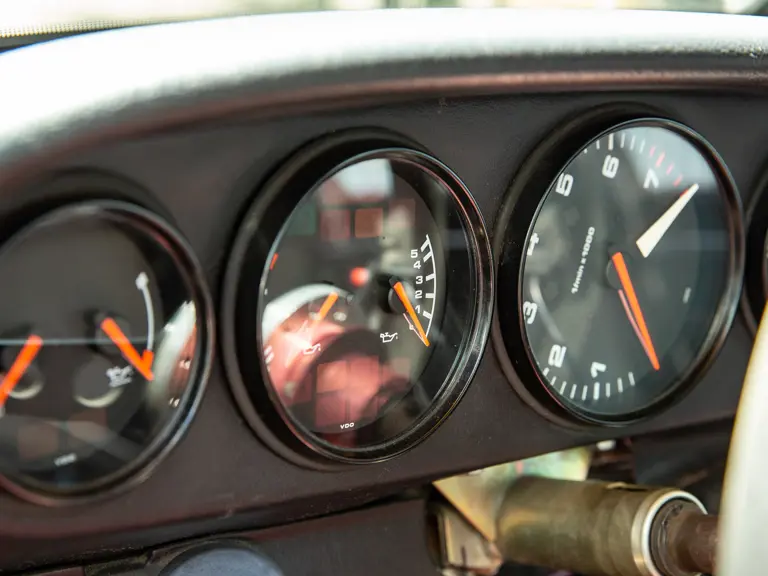
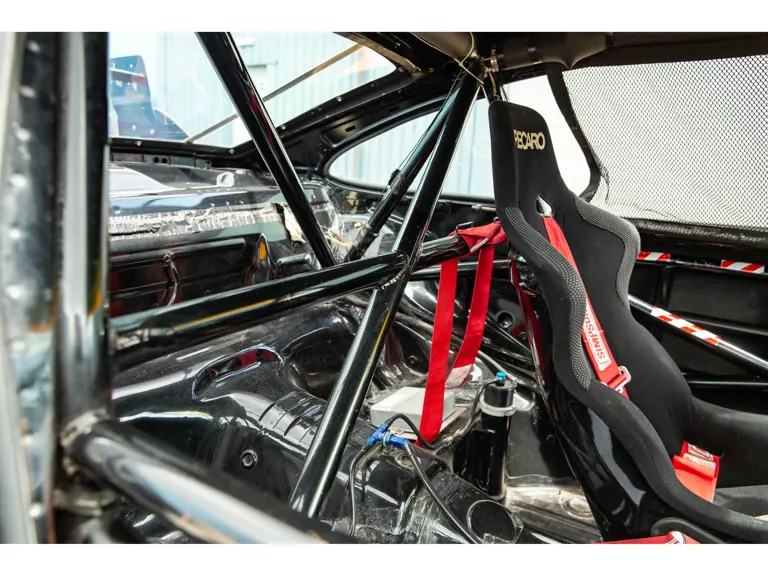
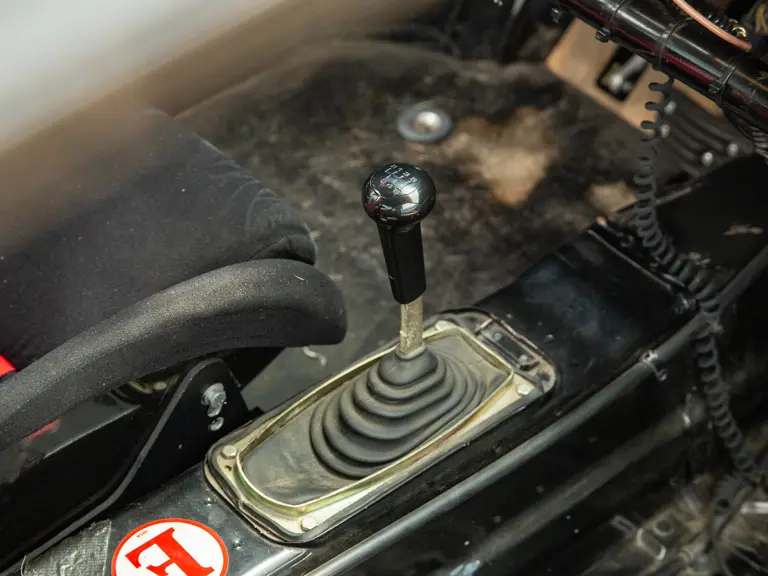
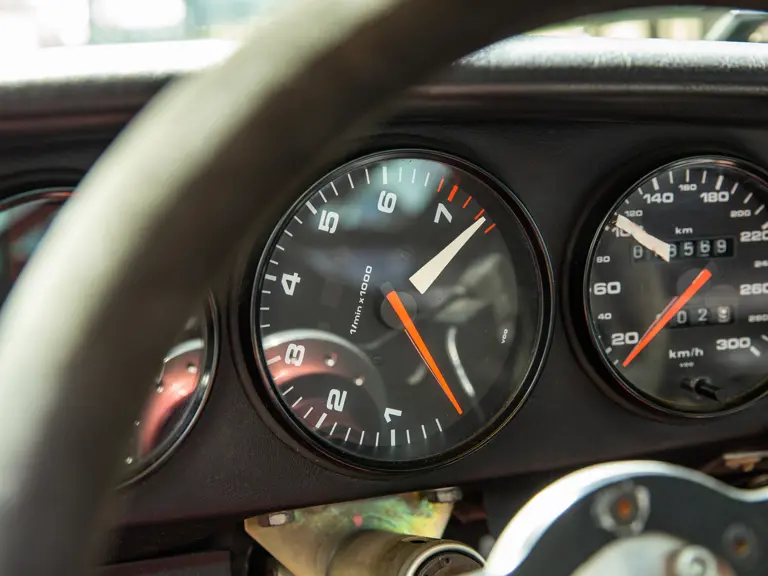
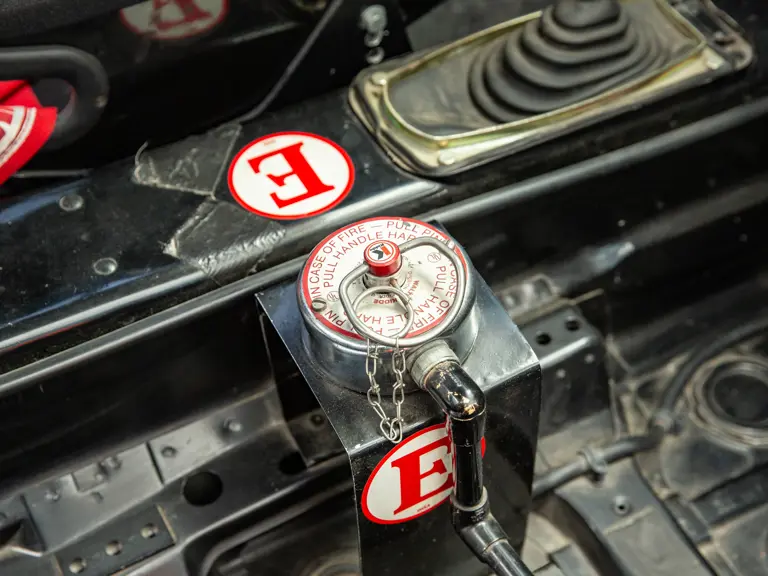
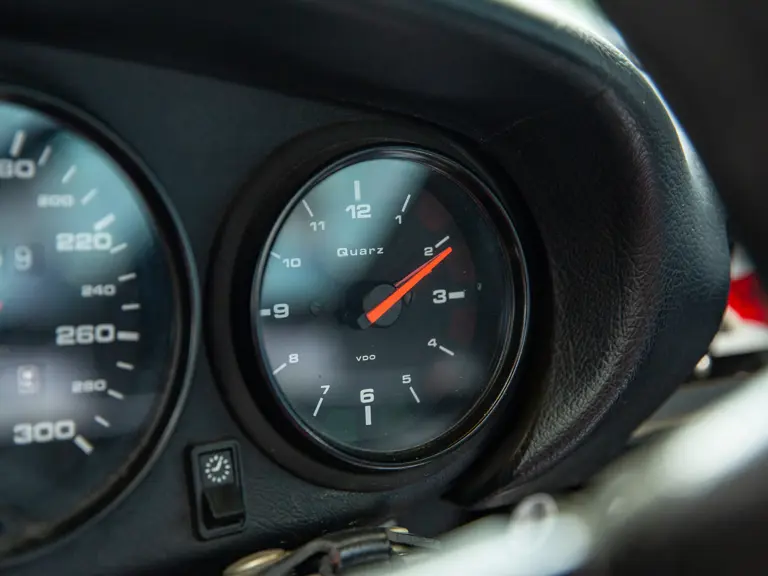
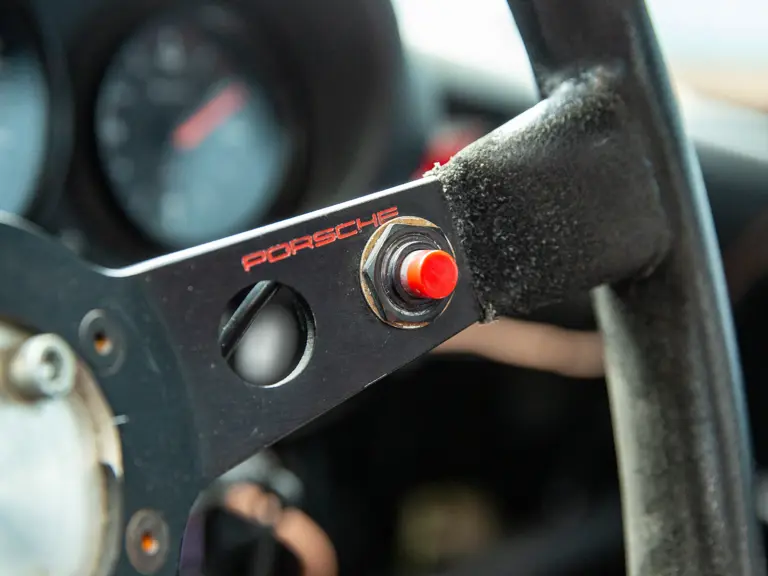
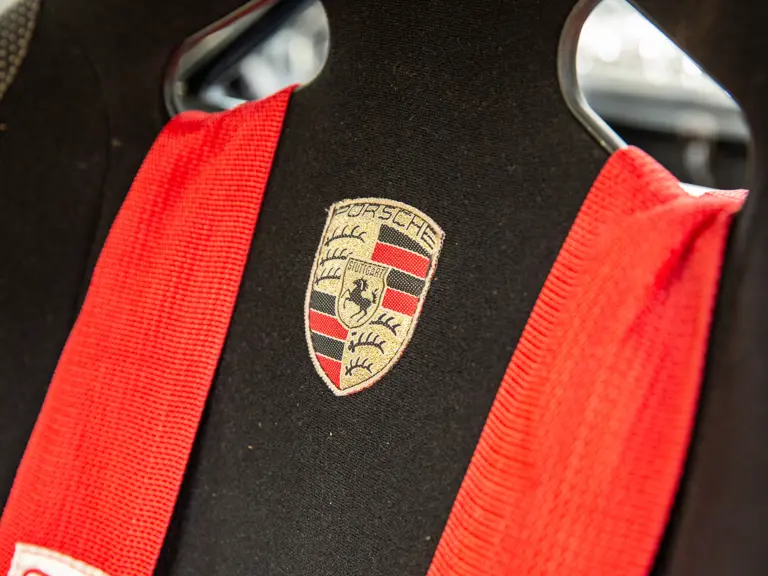
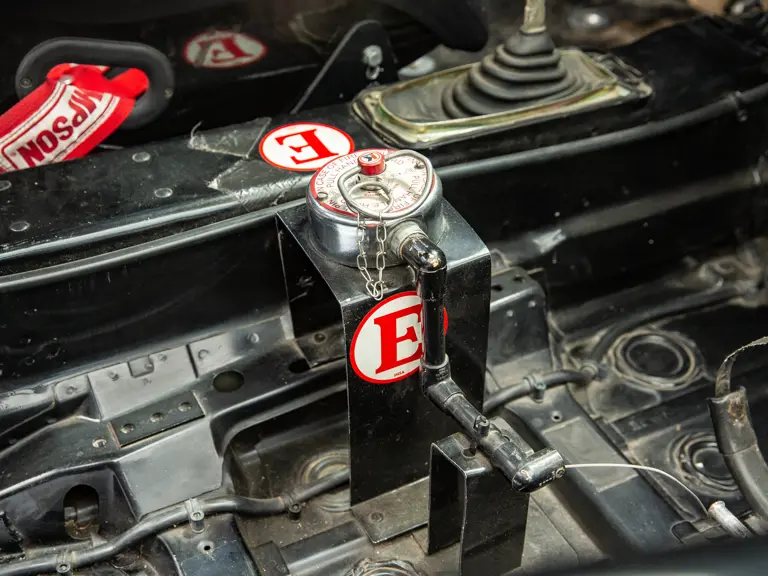
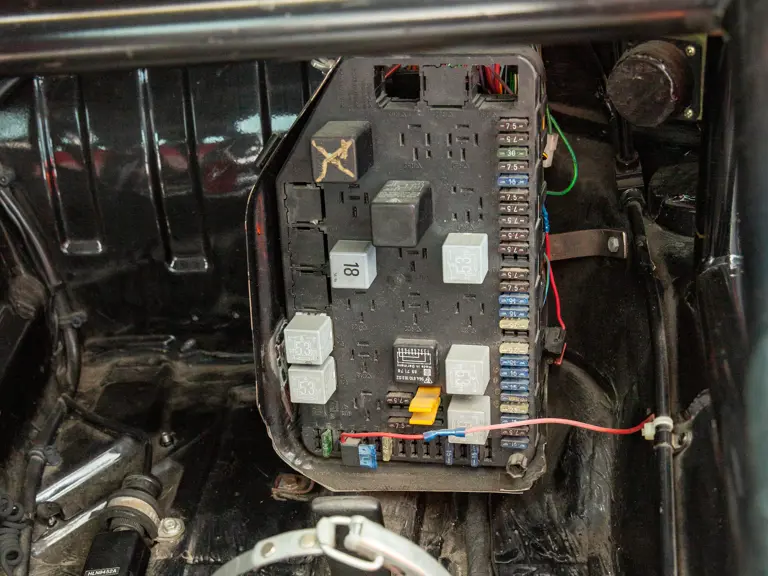
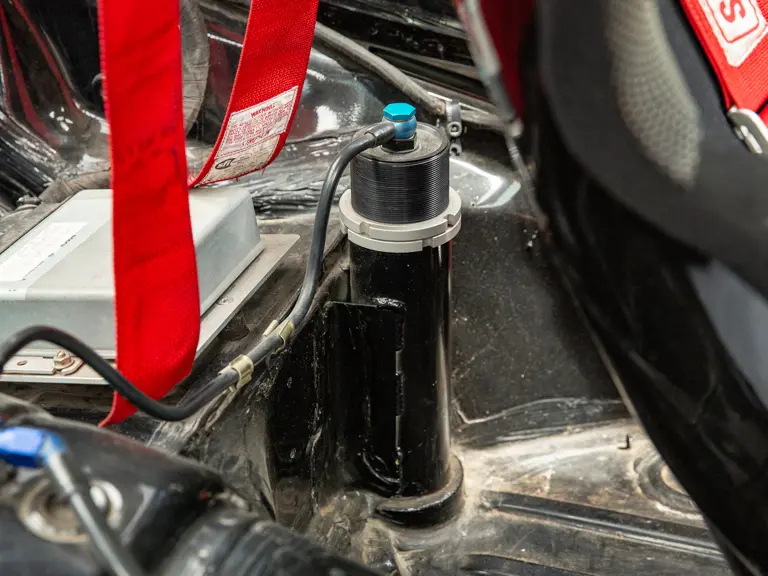
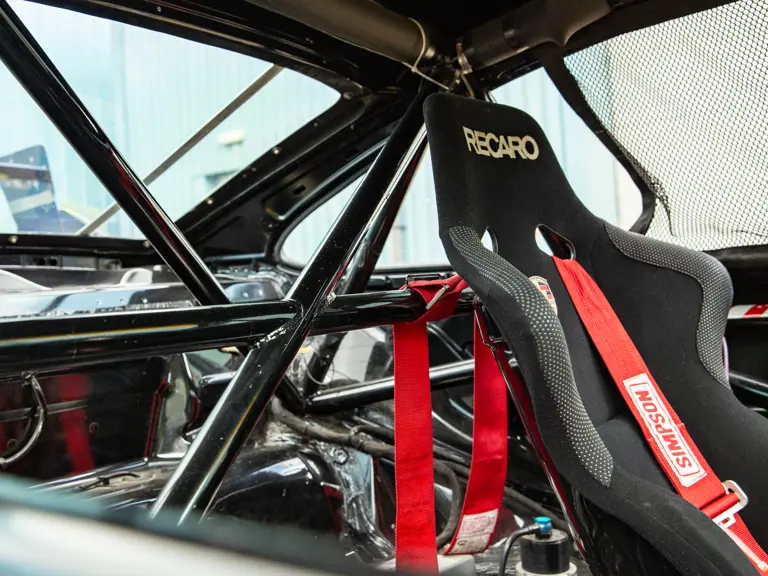
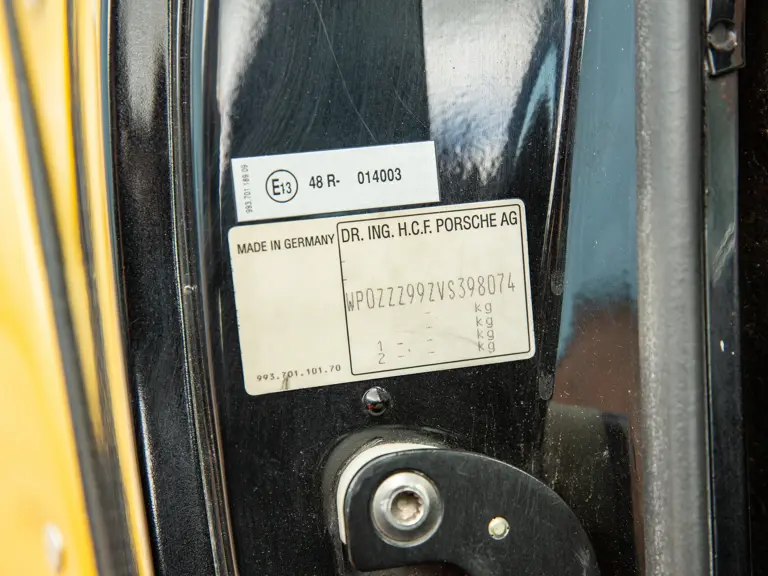
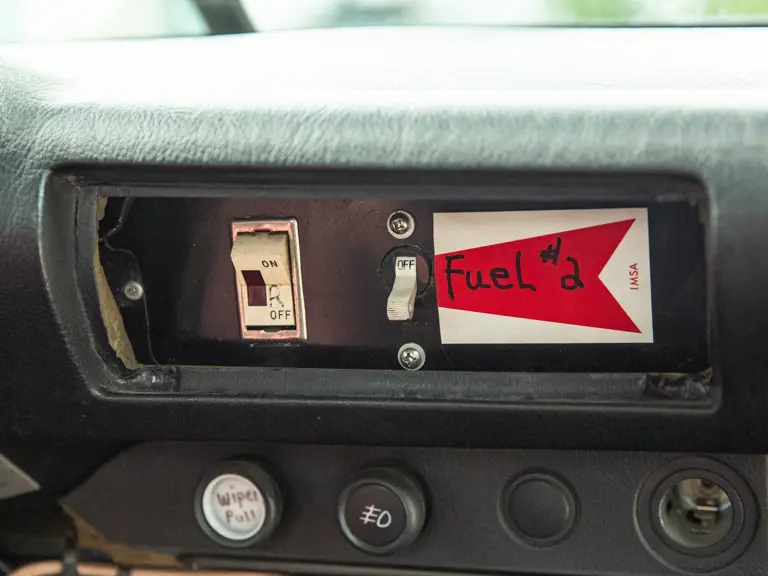
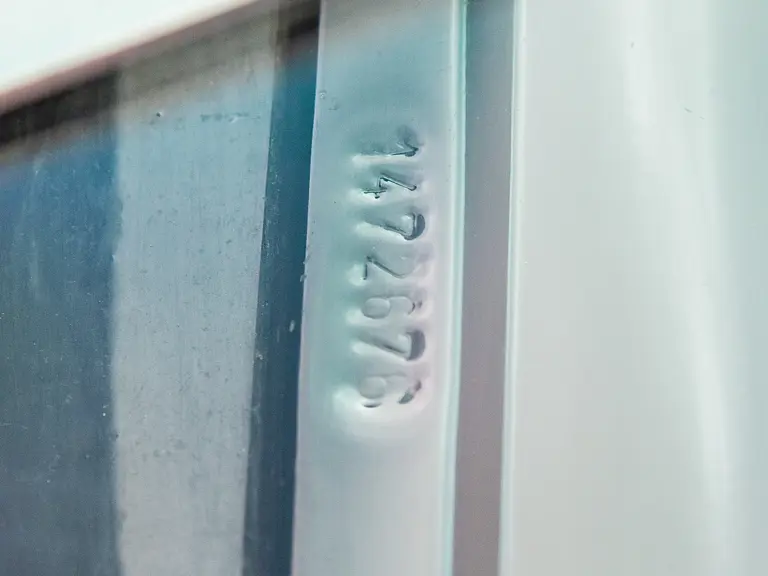
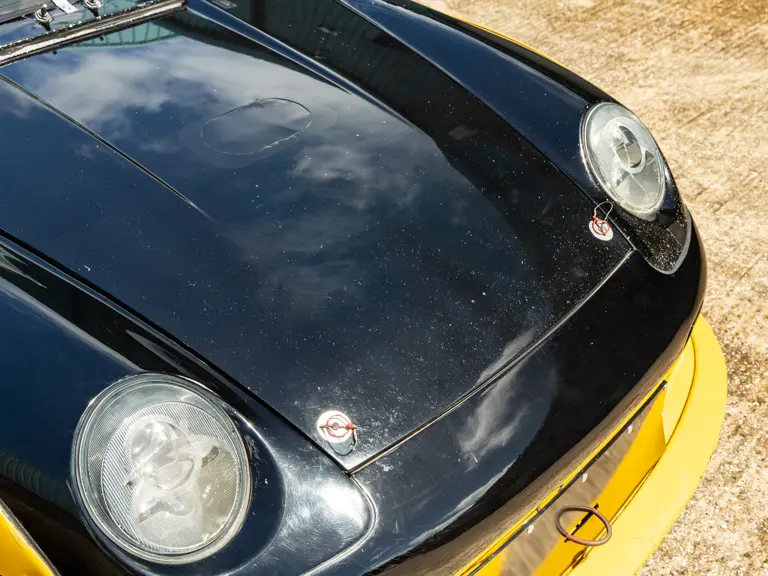
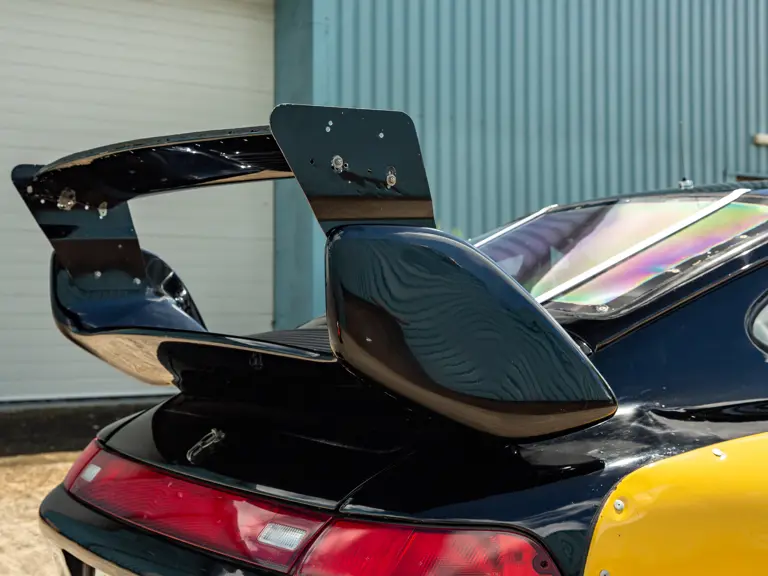
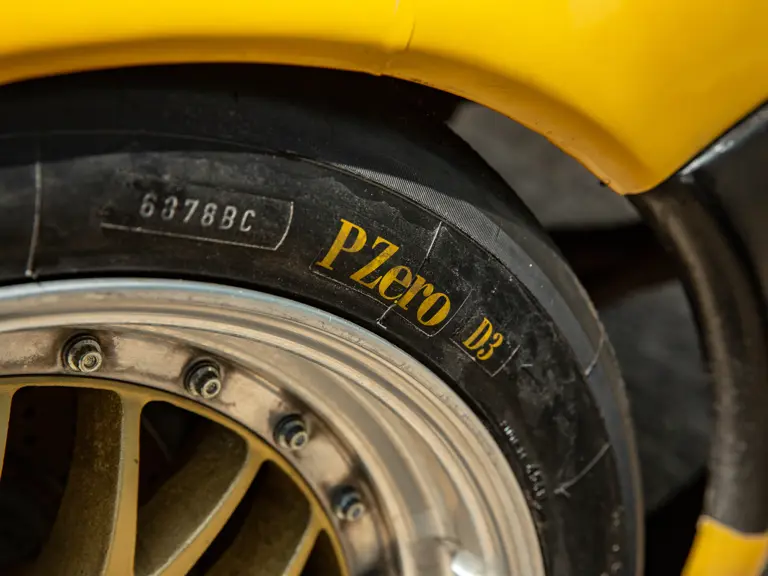
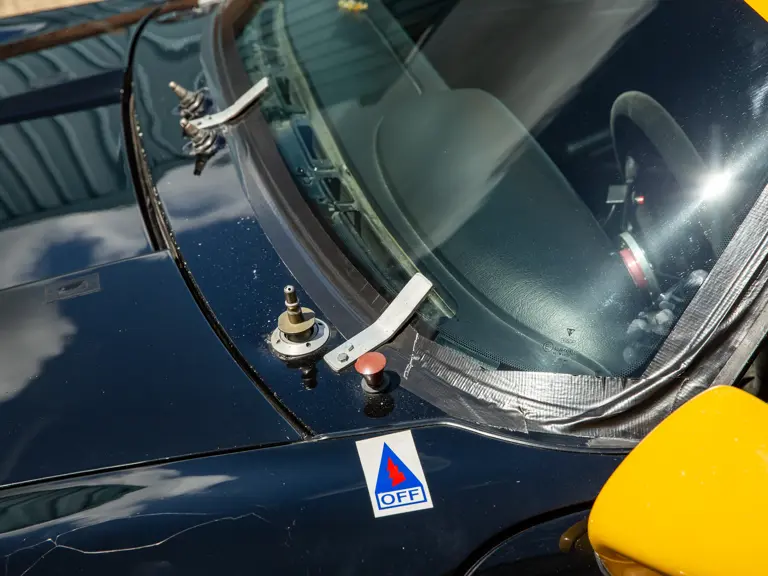
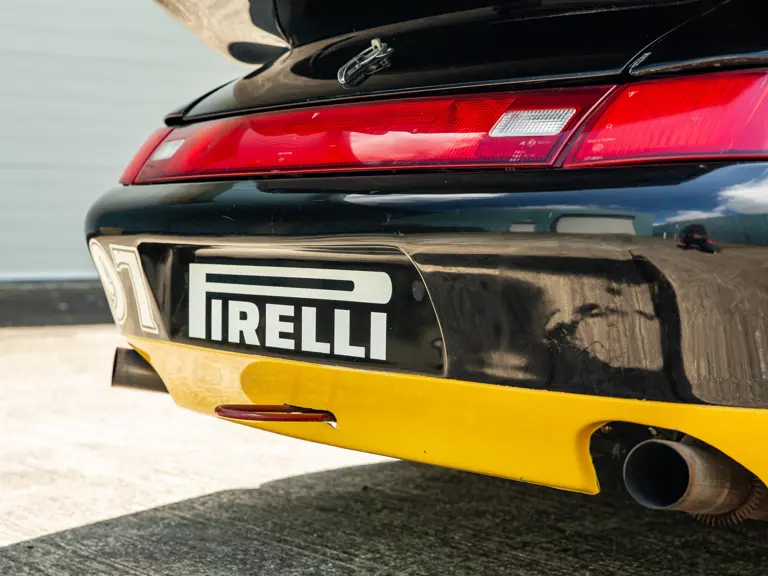
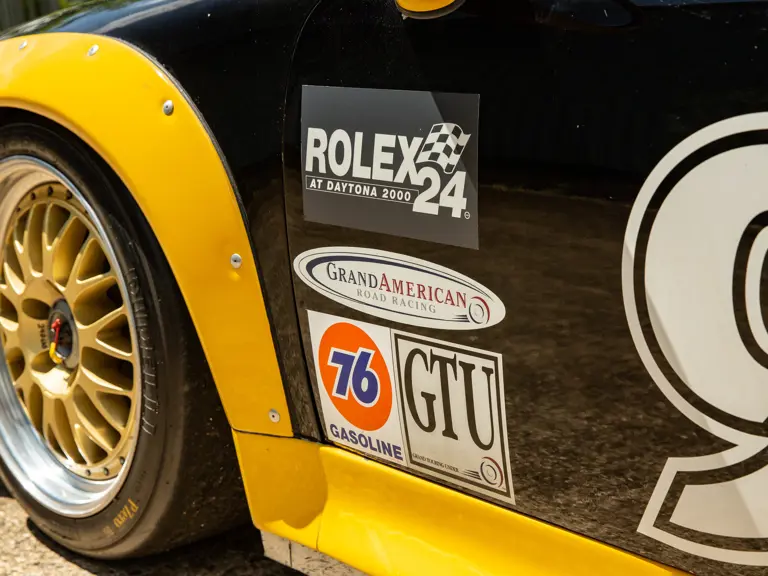
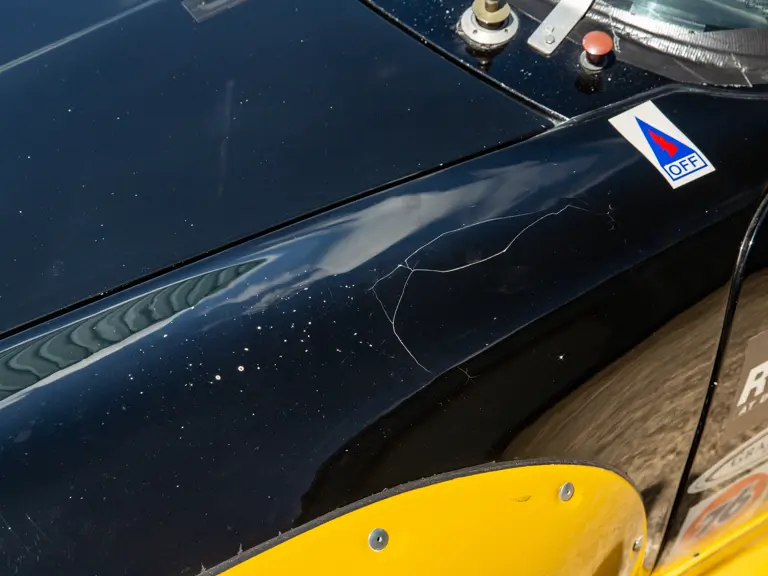
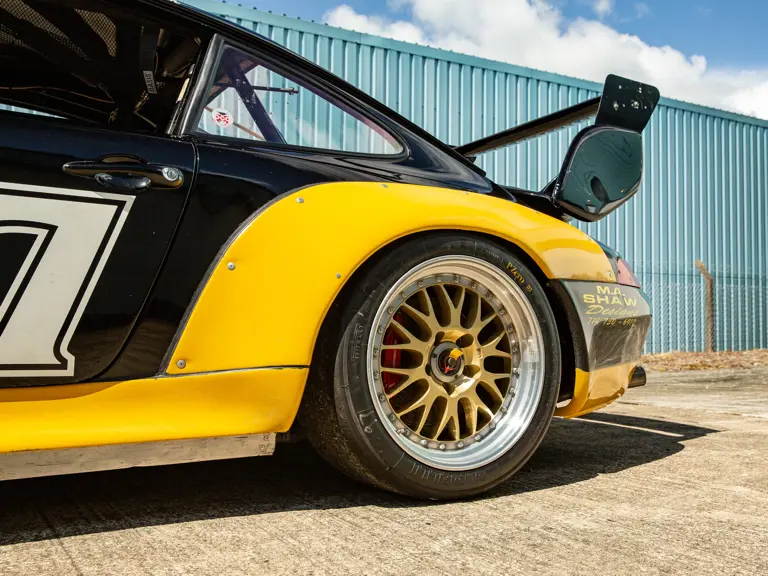
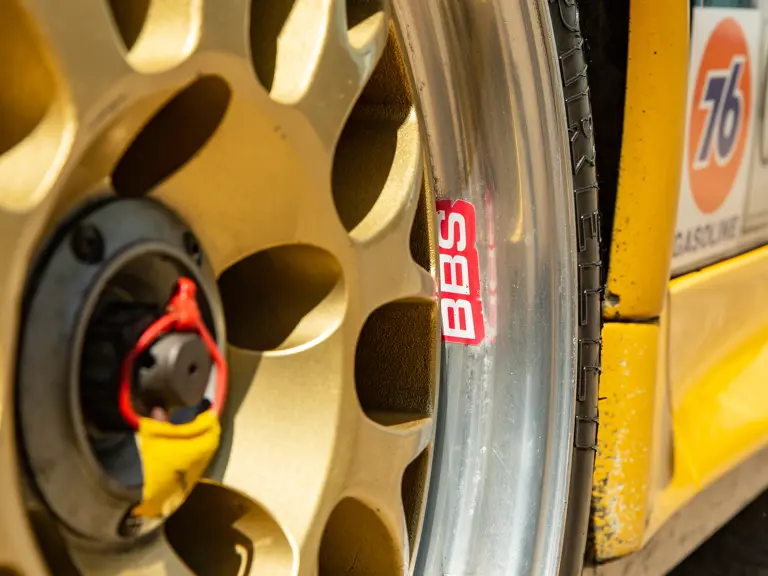
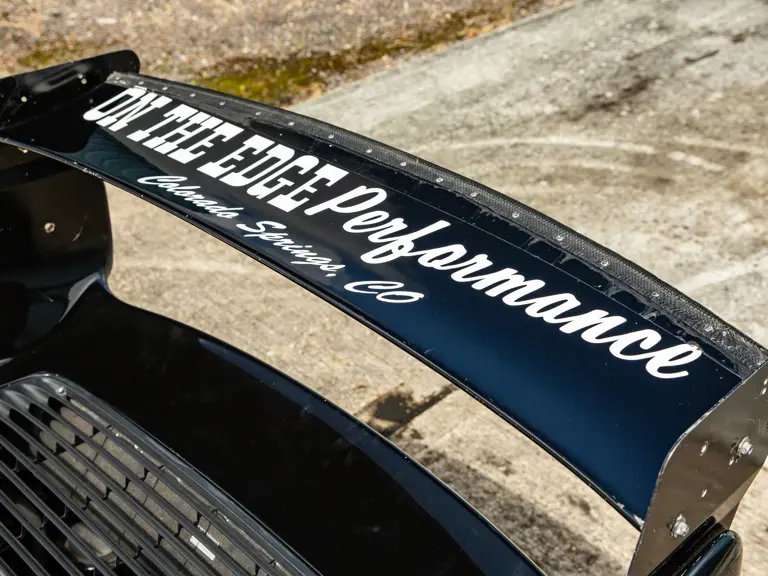
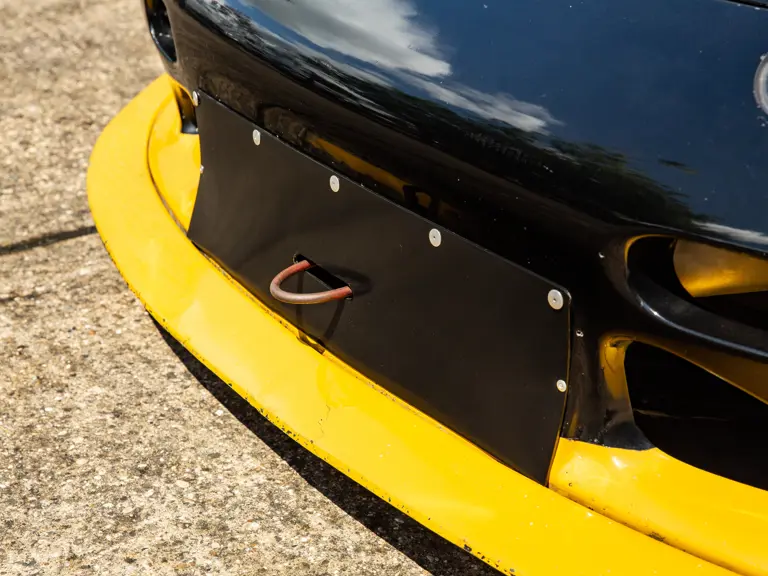
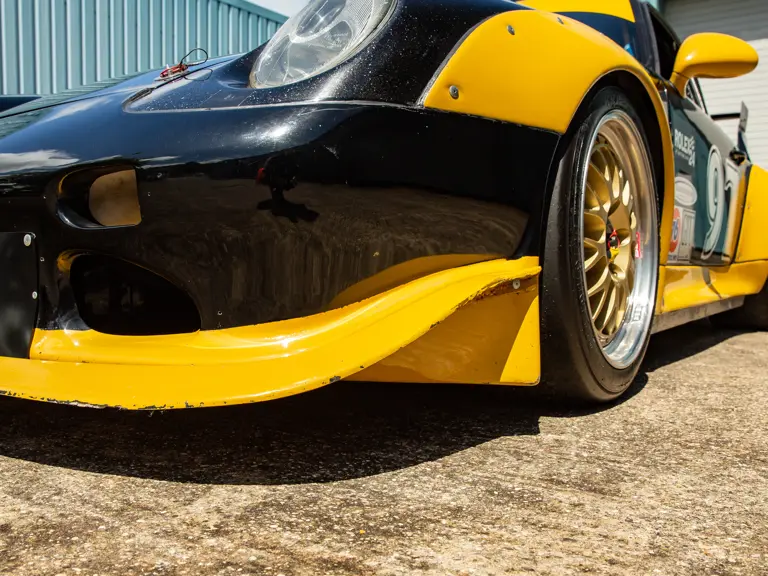
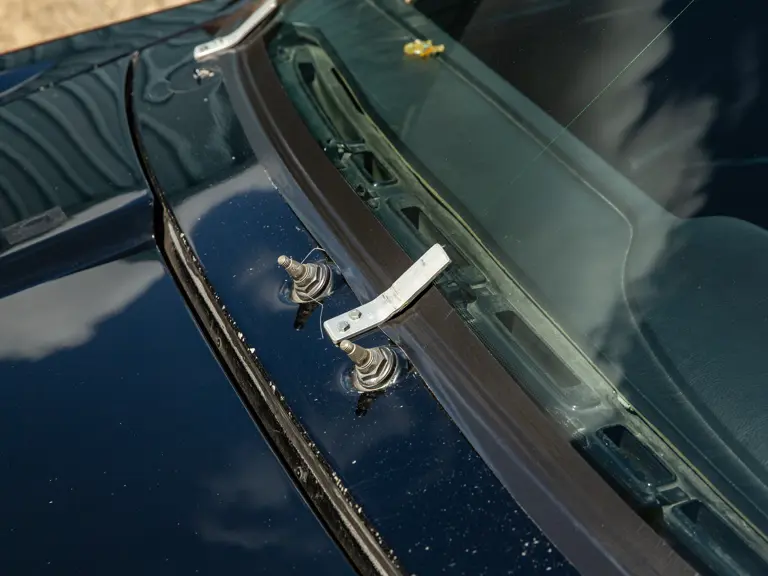
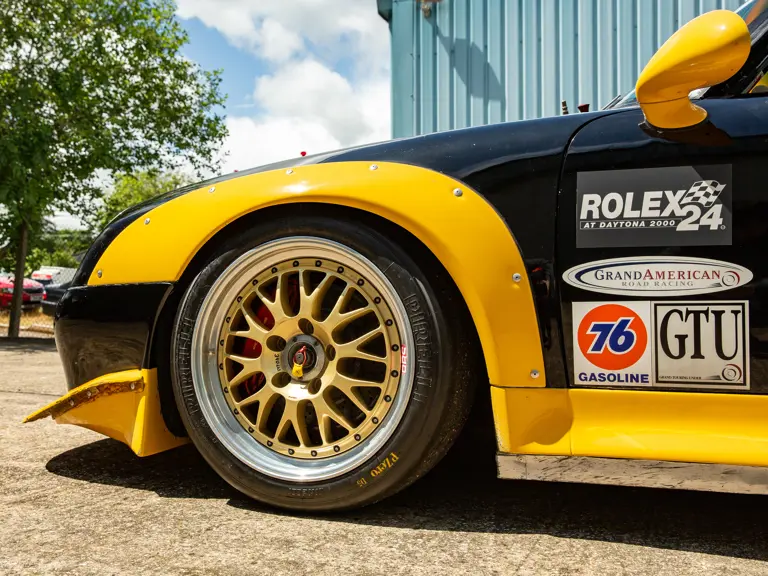
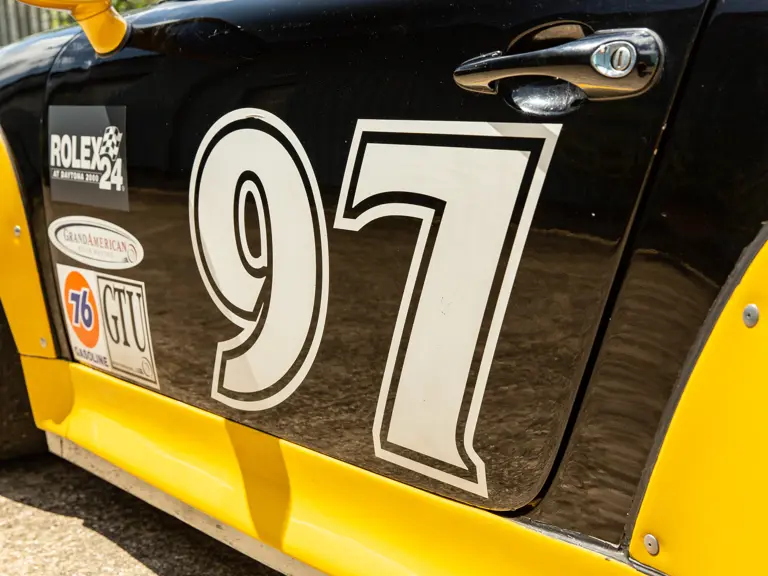
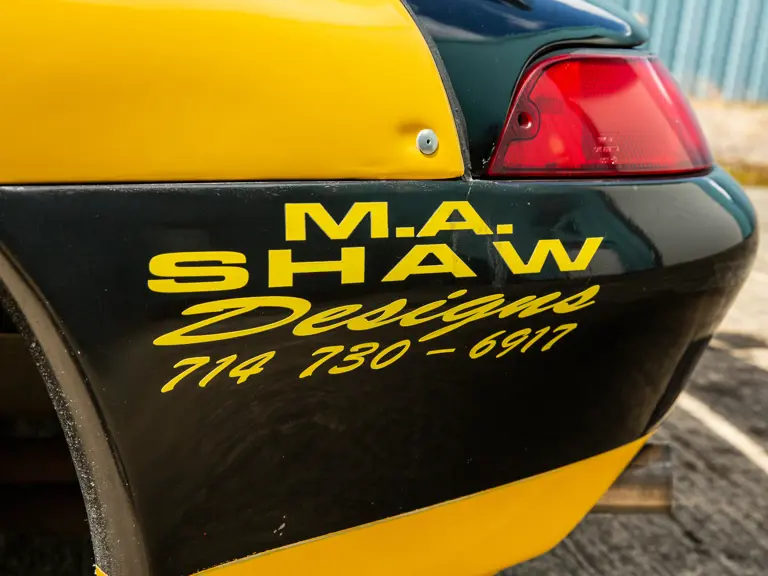
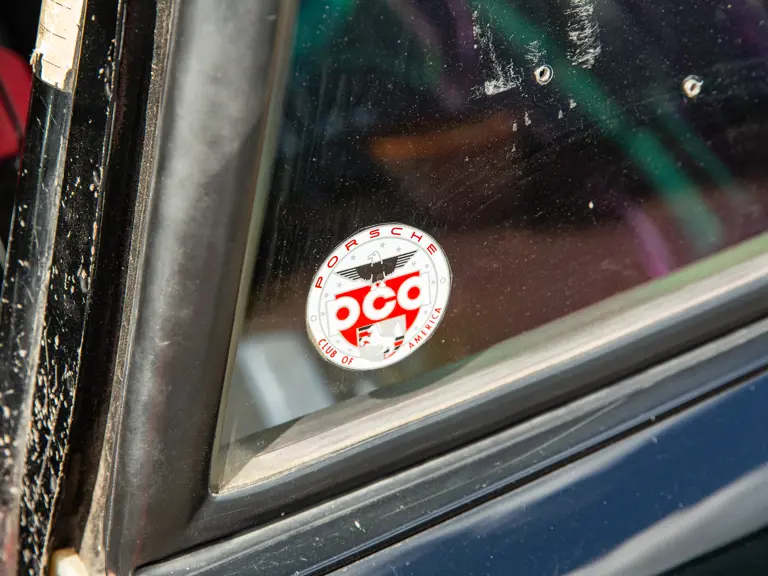
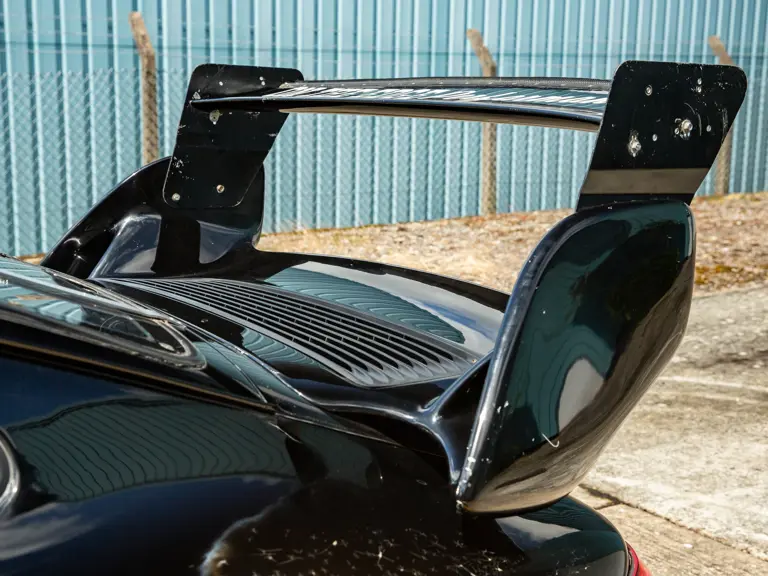
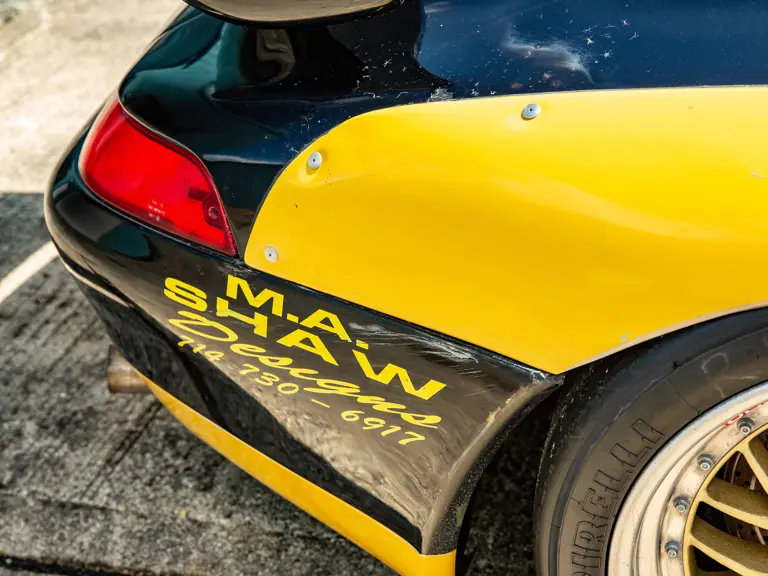
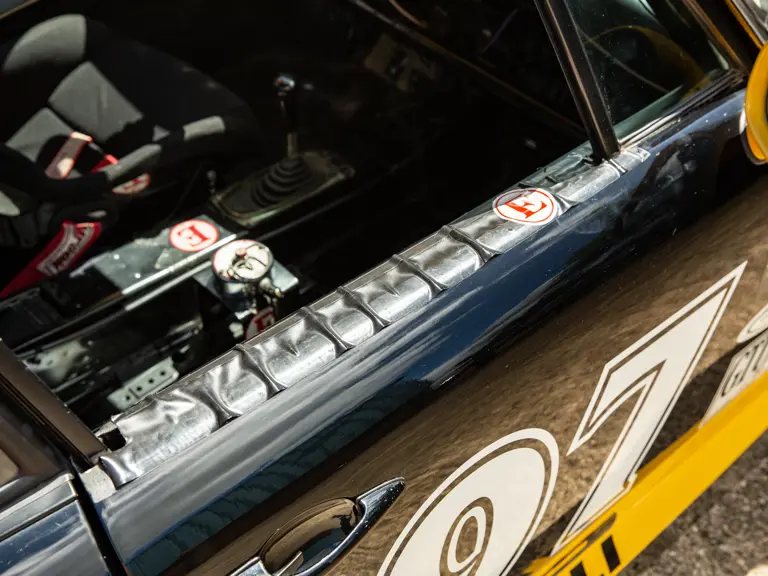
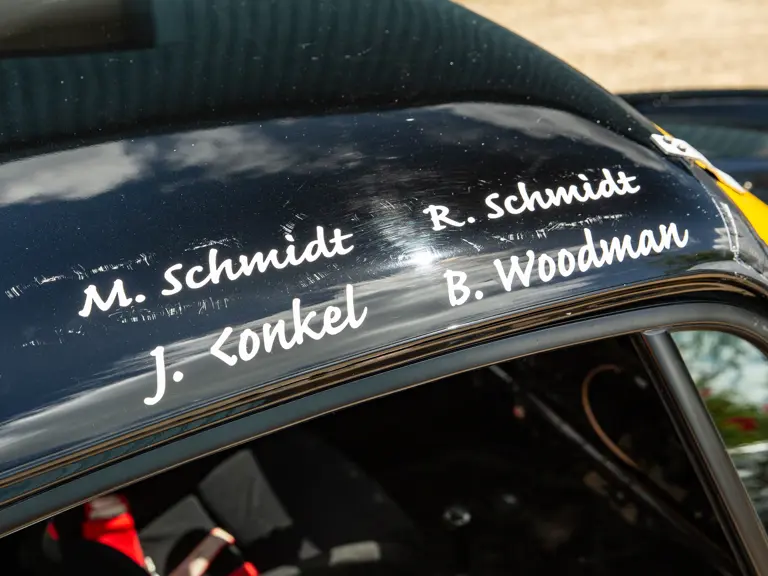
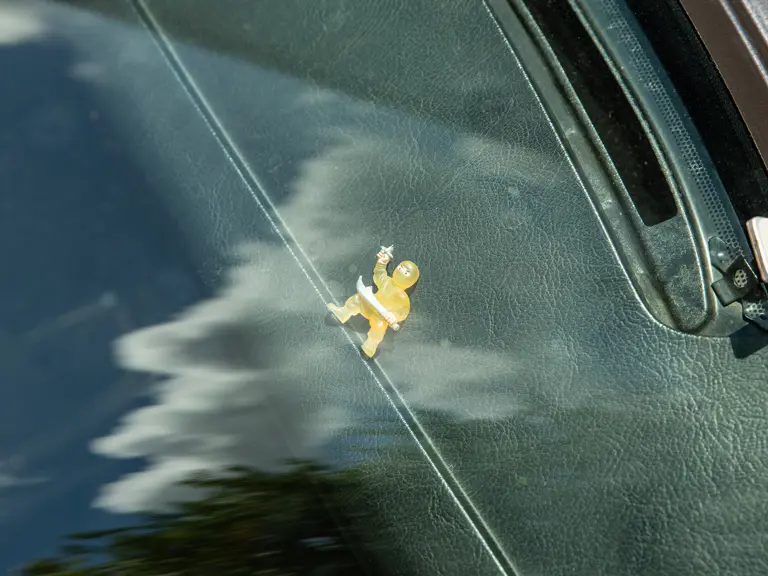
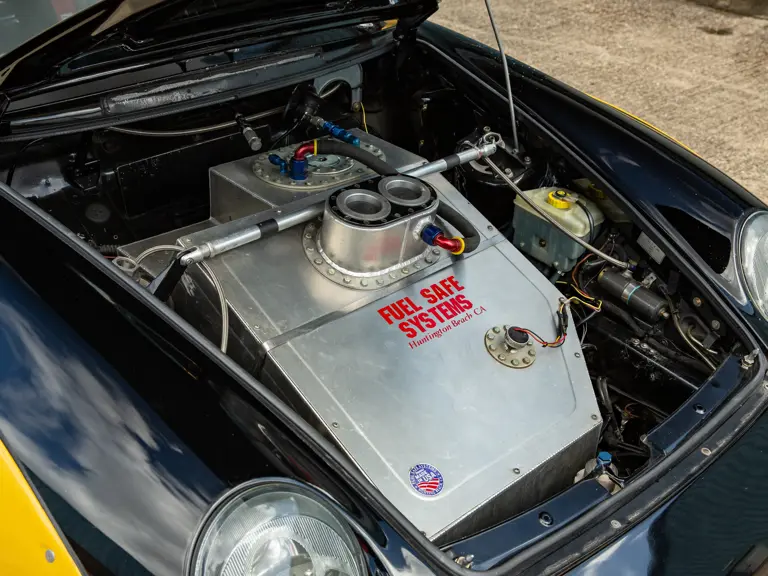
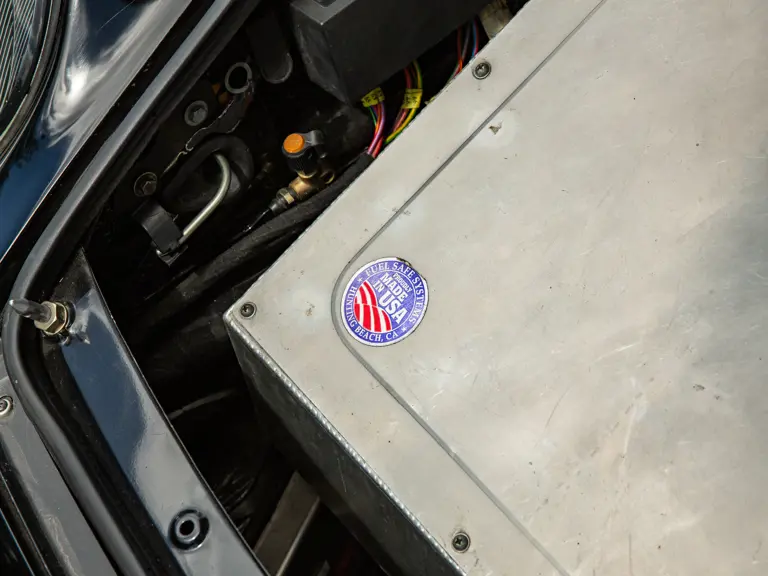
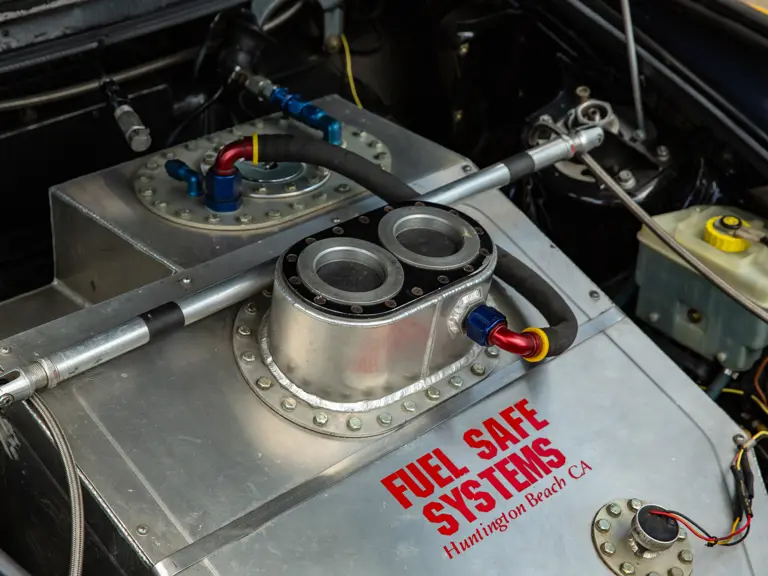
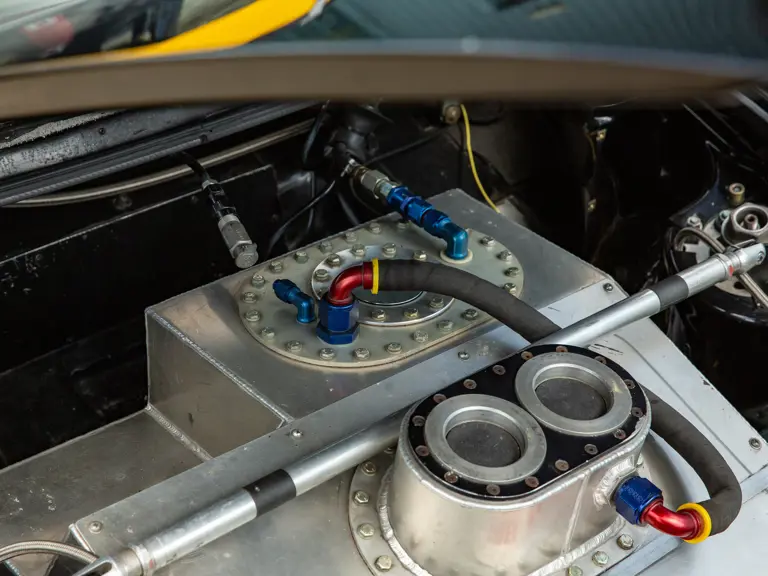
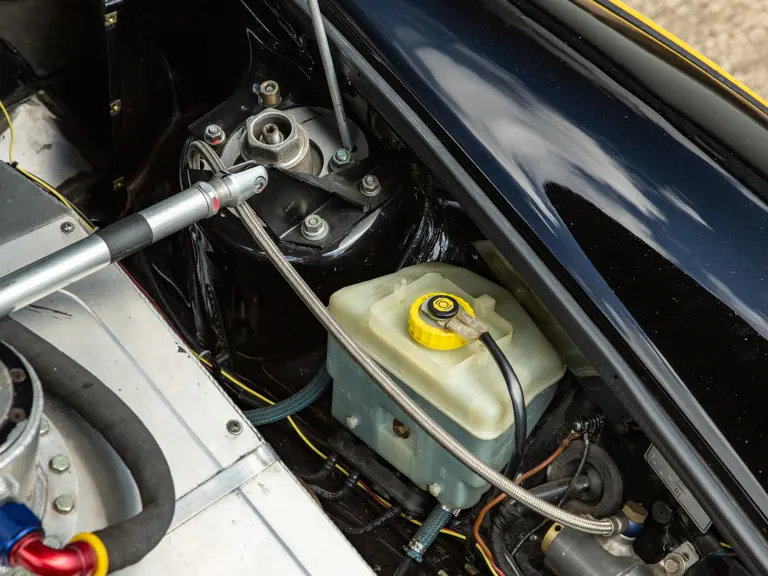
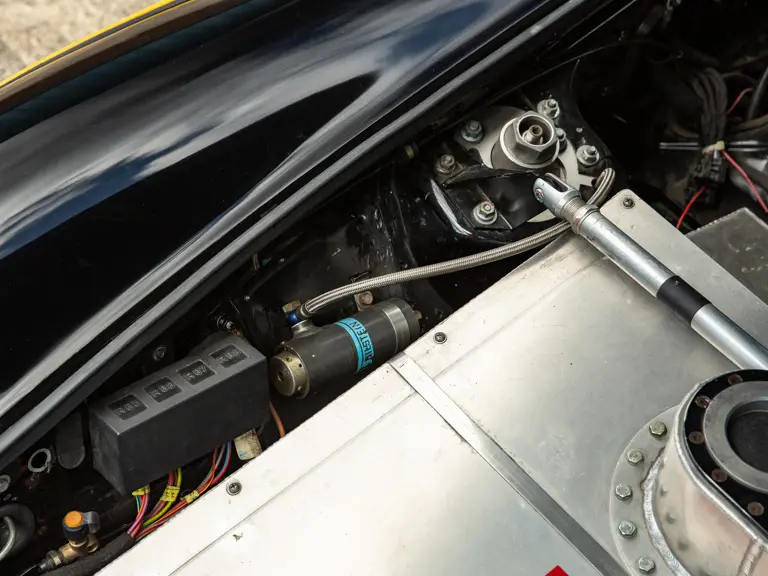
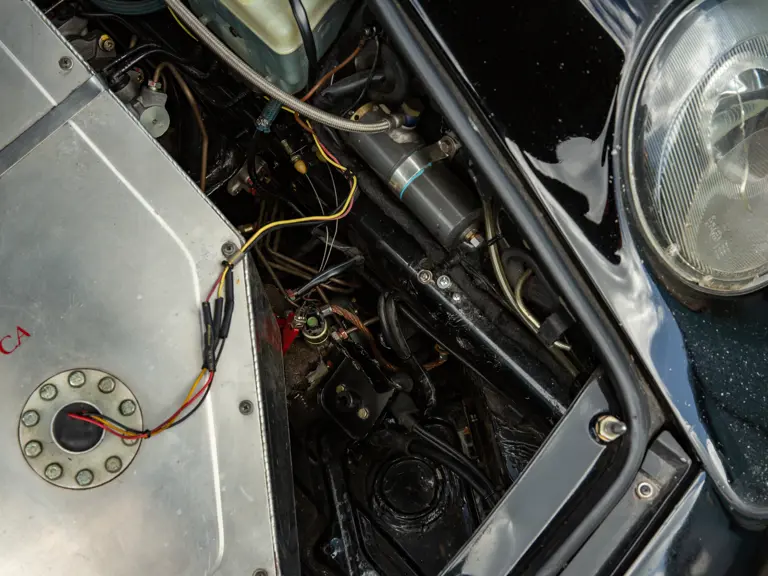
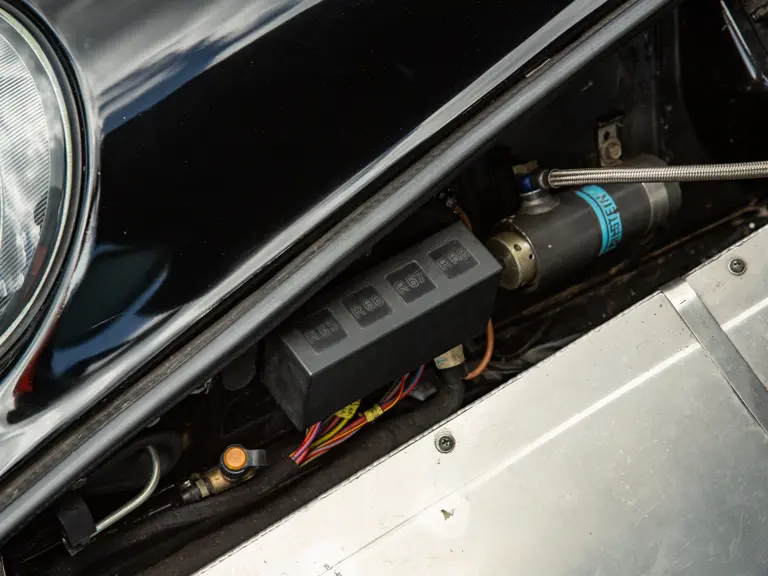
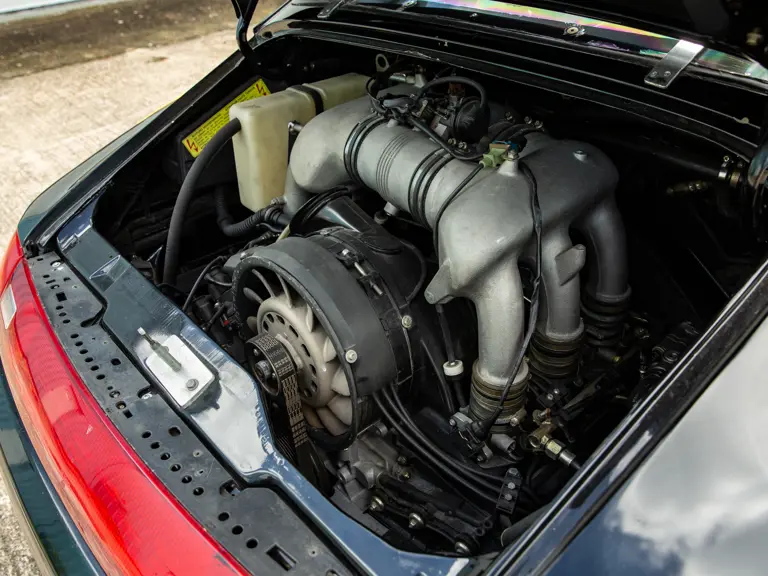
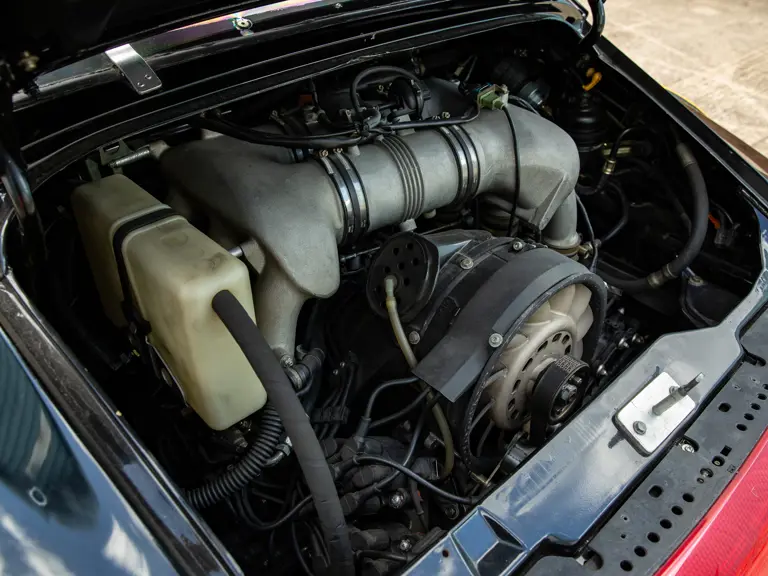
 | Monterey, California
| Monterey, California
